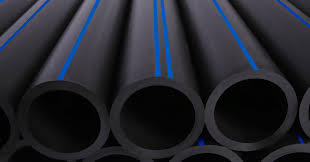Dec . 03, 2024 19:03 Back to list
hdpe pipe for water supply specifications products
HDPE Pipe for Water Supply Specifications and Benefits
High-Density Polyethylene (HDPE) pipes have become increasingly popular for water supply systems due to their durability, flexibility, and resistance to corrosion. In this article, we will explore the specifications of HDPE pipes and highlight the numerous benefits they offer for water supply applications.
Specifications of HDPE Pipes
1. Material Composition HDPE pipes are made from high-density polyethylene, which is a thermoplastic polymer known for its high strength-to-density ratio. This material is lightweight yet robust, making it ideal for various water supply applications.
2. Diameter and Thickness HDPE pipes come in a variety of diameters ranging from small sizes (e.g., 16mm) to large sizes (e.g., 1200mm or more). The wall thickness of the pipe is typically measured in terms of its Standard Dimension Ratio (SDR). Common SDR ratings range from SDR 11 to SDR 17, with lower SDR numbers indicating thicker walls and higher pressure ratings.
3. Pressure Ratings HDPE pipes are classified according to their pressure capabilities, which are indicated by the Maximum Operating Pressure (MOP). Typical pressure ratings are classified as PN 6, PN 10, PN 12.5, PN 16, and PN 20, where PN stands for Pressure Nominal. These ratings determine the maximum pressure the pipe can withstand during operation.
4. Durability and Longevity HDPE pipes have a high resistance to chemicals, UV radiation, and environmental stress, allowing them to last for over 50 years without significant degradation. The material is also non-toxic, making it safe for drinking water applications.
5. Joining Methods HDPE pipes can be joined using various techniques, including butt fusion, electro-fusion, and mechanical fittings. Butt fusion is the most common method, where the ends of the pipes are heated and then pressed together to form a seamless joint.
6. Standards Compliance The manufacturing and performance of HDPE pipes must adhere to international standards. Common standards include ASTM D3035 in the USA and ISO 4427 worldwide. Compliance with these standards ensures the quality and reliability of the pipes in water supply systems.
hdpe pipe for water supply specifications products

Benefits of HDPE Pipes
1. Corrosion Resistance Unlike traditional materials such as steel and iron that may rust or corrode, HDPE pipes are resistant to a variety of corrosive substances. This property ensures the longevity of the pipelines and reduces maintenance needs.
2. Reduced Water Loss HDPE pipes are less prone to leaks due to their robust design and smooth internal surface, which minimizes friction and water loss. This makes them an efficient choice for low-maintenance water supply systems.
3. Flexibility and Ease of Installation The flexibility of HDPE pipes makes them easier to install compared to rigid piping materials. They can be curved around obstacles and are well-suited for trenchless installation methods, which minimize environmental disruption.
4. Lightweight Design Being much lighter than other pipe materials, HDPE pipes are easier to transport and handle during installation, reducing labor costs and installation time.
5. Environmental Benefits HDPE is 100% recyclable, meaning that at the end of its life cycle, it can be repurposed rather than ending up in landfills. This eco-friendly aspect appeals to sustainability efforts in water management.
6. Cost-Effectiveness Although the initial costs of HDPE pipes may be higher than some traditional materials, their longevity, reduced maintenance needs, and efficiency in water delivery ultimately lead to lower overall costs for water supply systems.
Conclusion
HDPE pipes are an excellent choice for water supply systems due to their impressive specifications and myriad benefits. With their corrosion resistance, durability, flexibility, and eco-friendliness, they offer a modern solution to meet the growing demands of infrastructure while ensuring safe and reliable water delivery. As cities and communities upgrade their water supply systems, the adoption of HDPE piping is expected to rise, ensuring that we have clean and sustainable water for generations to come.
-
High-Quality PVC Borehole Pipes Durable & Versatile Pipe Solutions
NewsJul.08,2025
-
High-Quality PVC Perforated Pipes for Efficient Drainage Leading Manufacturers & Factories
NewsJul.08,2025
-
High-Quality PVC Borehole Pipes Durable Pipe Solutions by Leading Manufacturer
NewsJul.08,2025
-
High-Quality PVC Borehole Pipes Reliable PVC Pipe Manufacturer Solutions
NewsJul.07,2025
-
High-Quality UPVC Drain Pipes Durable HDPE & Drain Pipe Solutions
NewsJul.07,2025
-
High-Quality Conduit Pipes & HDPE Conduit Fittings Manufacturer Reliable Factory Supply
NewsJul.06,2025

